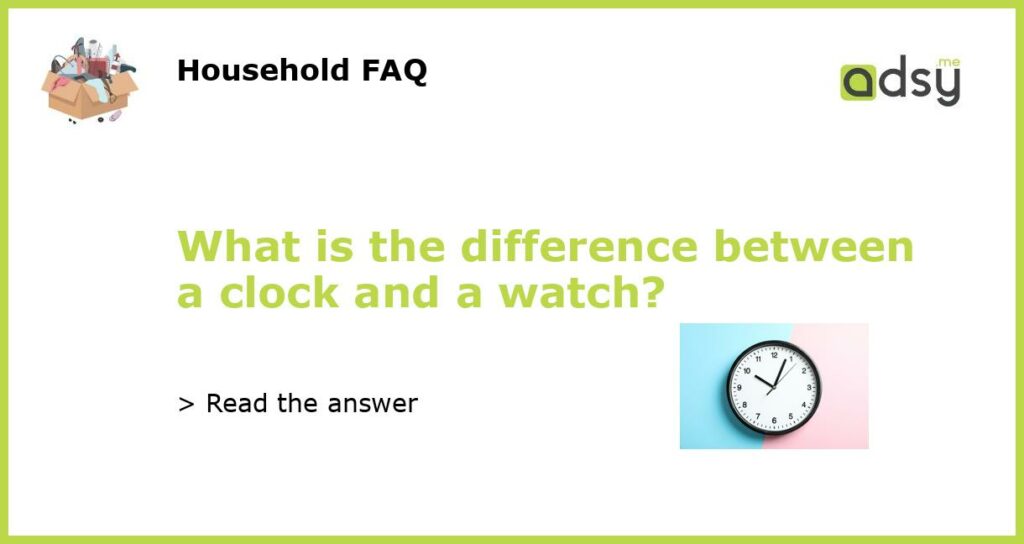Clock versus Watch: The Distinctions You Need to Know
Are you one of those people who interchangeably use the terms “clock” and “watch?” While they both tell time, they differ in many aspects. In this article, we will explore the differences between clocks and watches, including their features, uses, history, and more.
History of Clocks and Watches
The history of clocks dates back to almost 3500 BC, where Egyptians used obelisks, sundials, and water clocks to measure time. Meanwhile, watches made their first appearance in the 16th century as a more portable alternative to clocks. Patek Philippe, the first watch brand, was established in 1839 in Switzerland. Today, watches are worn more as a fashion accessory rather than a necessity.
Features and Uses of Clocks
Clocks have various features, including display type, size, design, and sound. Most clocks come in digital or analog displays, with analog clocks using a dial with hour and minute hands. Clocks are often larger than watches and are used as decorative items for homes or offices. They may also have additional features such as an alarm clock, timer, stopwatch, or world clock. In general, clocks are used to keep track of time in a stationary setting.
Features and Uses of Watches
Watches have evolved over the years to include features such as waterproofing and fitness tracking. They come in various designs and are made with different materials such as leather, metal, and rubber. Watches are worn on the wrist and are more portable than clocks. They are used for personal timekeeping, especially when on-the-go, and are also commonly used for fashion and status symbol purposes. Some watches also have additional features such as a stopwatch, timer, or GPS.
In conclusion, while clocks and watches both serve a similar purpose of telling time, they differ in design, features, uses, and history. Modern technology has enabled both clocks and watches to have additional features, and their designs have become more sophisticated. Today, both clocks and watches are still widely used and have become an essential part of our lives. Understanding the differences between the two can help you choose the right timekeeping tool for your specific needs.






